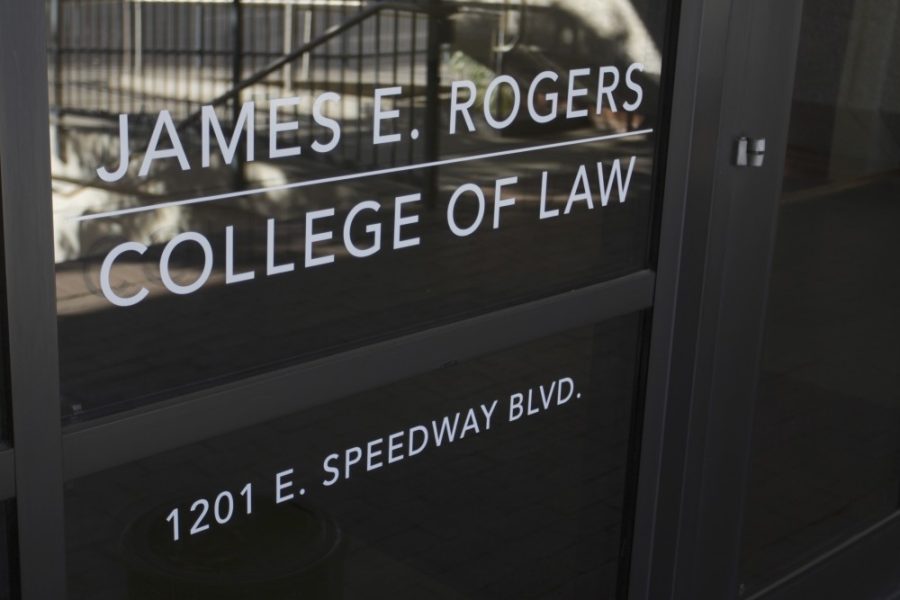Even with the overall national applicant pool dropping between 15 and 16 percent, admissions officers in the James E. Rogers College of Law remain confident that the UA’s reputation won’t be hindered by a downward trend in law school applicants.
Because of increasing tuition costs and the current economic landscape, the rate of applicants dropped 20 percent — even more than the national average — as of last year.
“We’re all in a declining market,” said Eric Eden, assistant dean of admissions and financial aid at the College of Law. “It’s a sea all the boats are on.”
All 10 of the regions that administer the Law School Administration Test in the United State have noticed a steady decline. The LSAT is one of the key factors, along with a student’s undergraduate grade point average and resume, that determine an applicant’s acceptance into law school.
The unfortunate standing of the economy, accompanied by the added worries of student loan debt and job security are all factors that are forcing students to reconsider whether it is the right time for them to apply to law school, Eden said.
“People who are committed are thinking rationally about their chances,” he said.
The average cost of tuition is estimated at $40,000 per academic year for in-state students at the College of Law. This could make students either postpone applying to law school or change careers altogether, though Eden remained optimistic.
“We already have a pretty big pool (of applicants),” Eden said. “We’re insulated by the talent in our pool, so our volume isn’t as effected.”
Unlike medical schools, the College of Law accepts students from all majors, such as history, philosophy and music.
“There is a real community here,” said Allison Nash, the College of Law’s director of admissions and financial aid. The college takes great pride in its intimate environment with small class sizes and consistent mentorship, she said.
“I don’t think it (a declining interest) is just for law schools,” said Jean Paul Barnard, a sophomore studying English. “The funnel is getting smaller and smaller all across the grad school board.”
As the son of an attorney, Barnard said he wants to study law in the hopes of emulating Atticus Finch, the character from “To Kill a Mockingbird.” The professional integrity and stamina required to endure law school is what attracted Barnard to pursue the profession, he said, and believes that the current student body of the College of Law is partly to blame for the decline in applicant interest.
“When you begin to unravel what it really is you’ll be doing,” Barnard said, “there is some serious consideration of whether one can handle it.”
In order to better educate the undergraduate student body about the law school experience, a new class has been introduced that delves deeper into the entire scope of understanding law and how the legal system operates.
“More courses could boost one’s confidence in determining whether they can really handle law school,” Barnard said.
Along with this class, a new credit program is in the works at the College of Law to possibly lower the costs for undergraduates committed to pursuing law school. The “Three plus three” program will allow undergraduates to begin the first year of law school simultaneously with their senior year of their undergraduate careers.
“Every year we try to sharpen our focus,” Eden said, “and this brand-new idea will hopefully save some tuition costs.”








